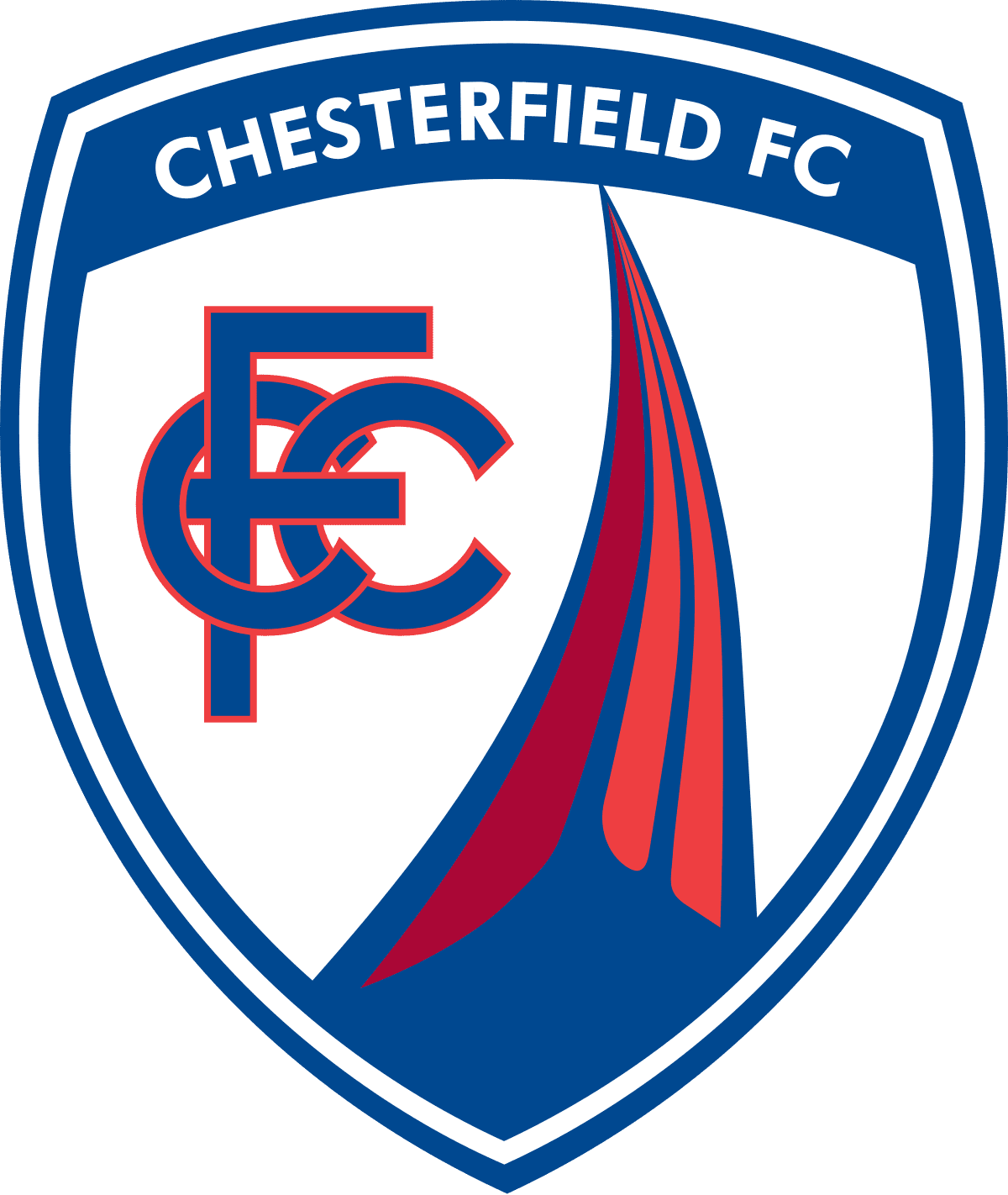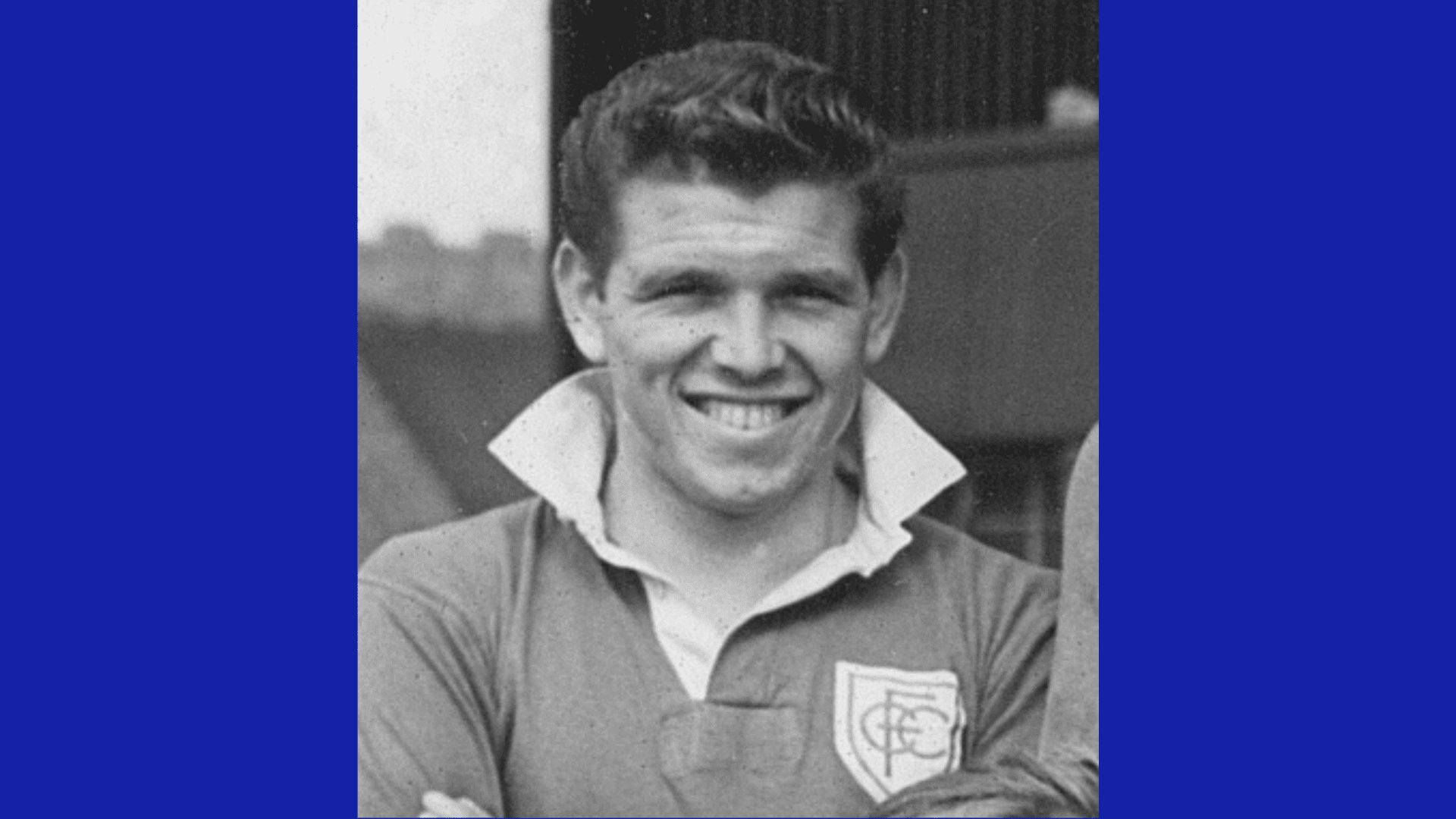Club historian Stuart Basson has written the followiing obituary for Gerry Clarke…
The term ‘Loyal clubman’ has dropped out of use as modern football appears to favour those whose careers are built around movement for personal advancement. The term might have been invented for Gerry Clarke, whose death at the age of 87 has recently been announced.
Born and raised in Barrow Hill, Gerry began playing for Oaks Fold, a Sheffield United ‘nursery’ team. After three years there Gerry joined Chesterfield as an amateur in the summer of 1954, alternating between the right-back and right-halfback positions in the club’s Yorkshire League team and earning promotion to the reserves. With Tommy Flockett injured and Gerry Sears on National Service, Clarke’s first-team debut came at the end of his first season, on Thursday, April 21, 1955 at Barrow, during a week in which he played for the ‘A’ team on Monday and the reserves on Tuesday.
Gerry graduated to the part-time professional ranks in 1956 but did not turn fully professional until 1962, preferring to keep up employment with the NCB at Markham Colliery. It may be that this desire to remain semi-pro held up his football career, for in four of his first five seasons he had to start in the reserves and work his way up to the first team. By the end of 1958/59 he had made only 64 league appearances for the club but on January 1, 1960 he began a run in the team as first-choice right-back that lasted for the next four seasons.
When Albert Holmes emerged to claim the number 2 shirt, Gerry moved a little further forward to become a strong defensive midfielder. He took over the captaincy of the side from Dave Blakey and remained a first-choice number 4 until breaking a leg against Scunthorpe at the start of the 1966/67 season. He returned to the side the following March and continued playing until retirement at the end of the 1967/68 season. Like every Chesterfield player in a Tony McShane team, he took his turn as an experimental centre-forward, playing three times up top at the end of the 1965/66 season, netting once; he also took over from an injured ‘keeper five times in the days before substitutes were allowed, without being beaten!
At the time of his retirement, Gerry had played 382 league matches and scored 21 goals, mostly from powerful shots, one of which burst the ball at Barrow in March 1967! His two most remembered goals are those that crowned a fightback from 2-0 down to earn a replay in an Football League Cup tie with Stoke in October 1965.
For some time before his retirement, Gerry had been studying for coaching badges. During the Easter school holidays in 1966, he ran a coaching scheme for local kids and the direction of a post-playing career began to emerge. When Jim Smallwood became groundsman in November 1967, Clarke took on Smallwood’s duties as trainer, stepping up fully to the post upon retirement from the playing side. Joe Shaw’s appointment as manager in July 1973 brought another promotion – to the position of `deputy manager/coach’.
Gerry held this position for a year before taking everyone by surprise and resigning to join Brian Clough and Peter Taylor as chief coach at Brighton. His decision was understandable: he had been working without a contract at Chesterfield, and Brighton offered to double his wages. The next surprise was Gerry’s: he came in for his second day of work at the Goldstone Ground to find that Cloughie had quit!
Gerry stayed only a few months on the south coast. He resigned in November 1974, having been unable to settle in his first job away from his home town. He came back with a different outlook, too: “I’ve learned”, he said, “that there’s more to life than money.” He returned to Chesterfield as chief scout and trainer to the reserves.
In July 1976, Gerry returned from a family holiday in Bude for the first day of training, to find out that he’d been sacked. Within a day, he was appointed to the coaching staff at Mansfield, who obviously recognised the value of a man who had completed no fewer than sixteen FA coaching courses. His influence helped bring Ernie Moss in to resume his partnership with Kevin Randall, and Mansfield won the Division Three championship in his first season. He stayed three seasons at Field Mill, leaving only after manager Billy Bingham had been sacked.
In 1979 Gerry began helping David Pleat by scouting for Luton Town while working for Hubbard Print, in Dronfield. Although his full-time football career had drawn to a close, he kept up an involvement in the part-time game with such clubs as Staveley Works and played cricket regularly to a good standard. These occupations stopped abruptly in 1993 when Gerry underwent a quadruple heart bypass operation. Happily, Gerry recovered fully and to become a keen but occasional golfer. He was also a member of Chesterfield Male Voice Choir.
We send our sincere condolences to Gerry’s family and friends.





